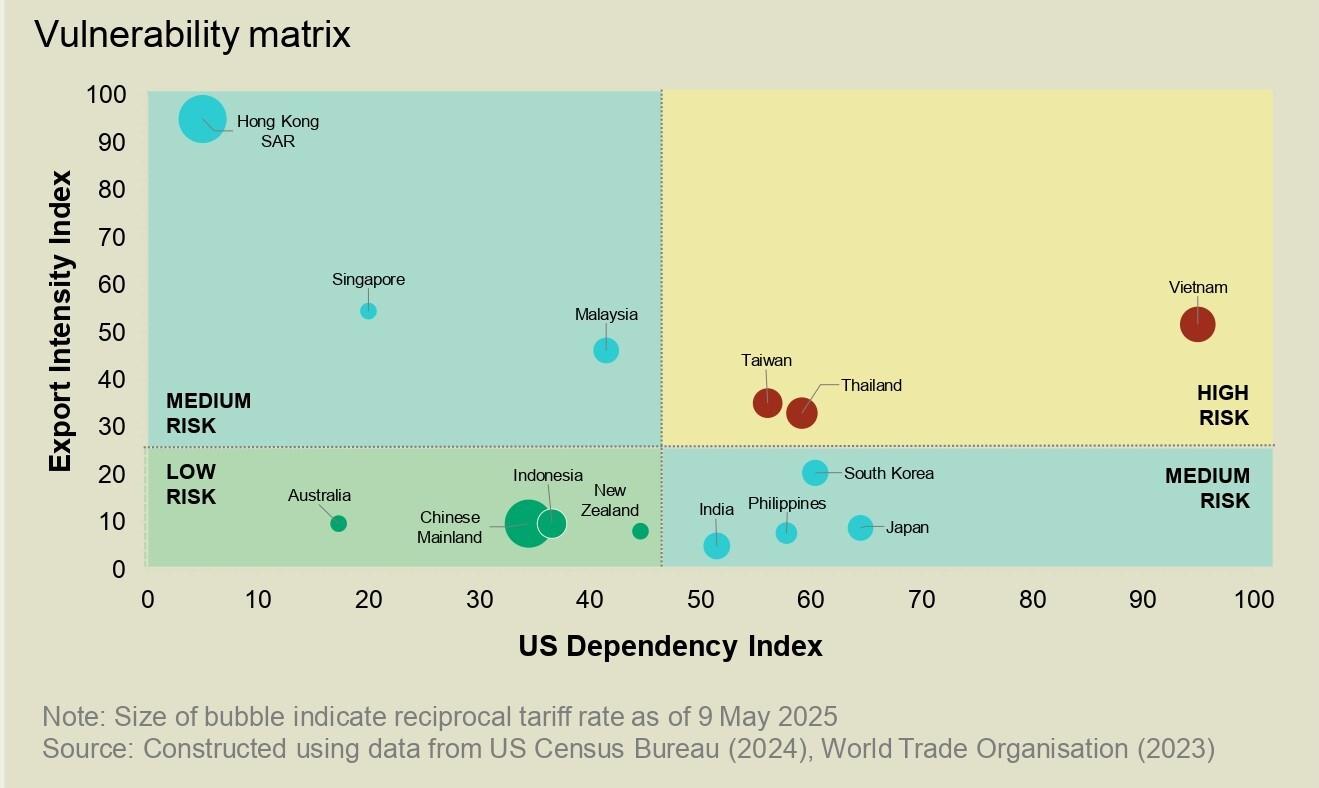
Manufacturing and logistics demand in Indonesia and Vietnam is expected to grow by up to 20% over the next three years, as companies increasingly prioritise building resilient regional supply chains over reacting to short-term tariff fluctuations.
According to Knight Frank's Horizon Report, From Whiplash to Resilience: Corporate Real Estate in the New World Order, structural cost differences remain the key driver behind multinational companies from the Chinese mainland, Japan, and South Korea redirecting capital into Vietnam and Indonesia under "China+N" strategies.
"By investing in these Southeast Asian markets, firms gain access to cost-efficient, purpose-built industrial facilities that support supply chain diversification," it said.
The independent global property consultancy firm, noted, however, that the recent 90-day suspension of the Chinese mainland's tariffs — which reduced rates from 145% to a base of 30% — has injected fresh uncertainty into relocation decisions, further reinforcing demand for short-term leases and flexible, plug-and-play logistics parks.
"China+N" the new standard strategy
"Our analysis shows that while the temporary tariff reduction provides companies with breathing room, the 'China+N' strategy has become a standard operating model rather than just a response to tariffs," Tim Armstrong, global head, occupier strategy and solutions, Knight Frank, said.
"We have entered a time where corporate real estate strategy must evolve from footprint expansion to operational durability and total-cost performance," he added.
"This isn't a cyclical adjustment, it's a structural transformation that requires entirely new approaches to portfolio planning, lease structures, and location strategy," Armstrong further said.
Knight Frank's research highlights diverging trajectories across Asia-Pacific's real estate markets.
Christine Li, head of research, Asia-Pacific, Knight Frank noted that "the shift toward an 'Asia for Asia' model, where over 65% of supply chain investment decisions are now driven by intra-Asian consumption, is accelerating."
"Industrial demand is rising in countries such as Vietnam, India, and Indonesia. Meanwhile, regional service and gateway hubs such as Singapore and Hong Kong SAR face second-order risks from US tariffs via global supply chain disruptions and spillovers from directly impacted economies," she said.

Source: Knight Frank analysis, U.S. Census Bureau (2024), World Trade Organization (2023).
India, Indonesia growth potential
The Knight Frank report also highlighted Indonesia and India strong growth potential.
It said that Indonesia is expected to see 15% to 20% growth in manufacturing-related real estate demand, led by electronics, automotive, and logistics sectors seeking long-term, purpose-built facilities.
Meanwhile, India's office market remains strong, accounting for 47% of regional leasing activity in 2024 — up from 36% in 2015 — with a record 6.68 million sq m of transactions, driven by IT firms, Global Capability Centres, and multinationals attracted by talent and cost advantages.
Vietnam also remains a key beneficiary of 'China+N' diversification but also stands among the most exposed to the US reciprocal tariffs.
Knight Frank research projects a 15 to 20% rise in demand for manufacturing space in Vietnam, reflecting sustained interest from international occupiers, particularly large Chinese mainland e-commerce firms seeking logistics facilities over 100,000 square metres.
"The Chinese mainland may see temporary relief from the tariff reduction, but structural challenges persist with rising industrial vacancy rates in Shanghai and Beijing due to persistent oversupply," the report said, adding that the government's focus on domestic consumption remains the primary expected driver of industrial space absorption.
Armstrong noted that corporate real estate has moved beyond location strategy to become a vital component of operational resilience.
"Despite the temporary easing, the current trade environment reinforces the need for agility in portfolio management and lease structures. Companies that calibrate their real estate approach will be better positioned for success regardless of how the US-China negotiations unfold," the Knight Frank global head, occupier strategy and solutions, said.



